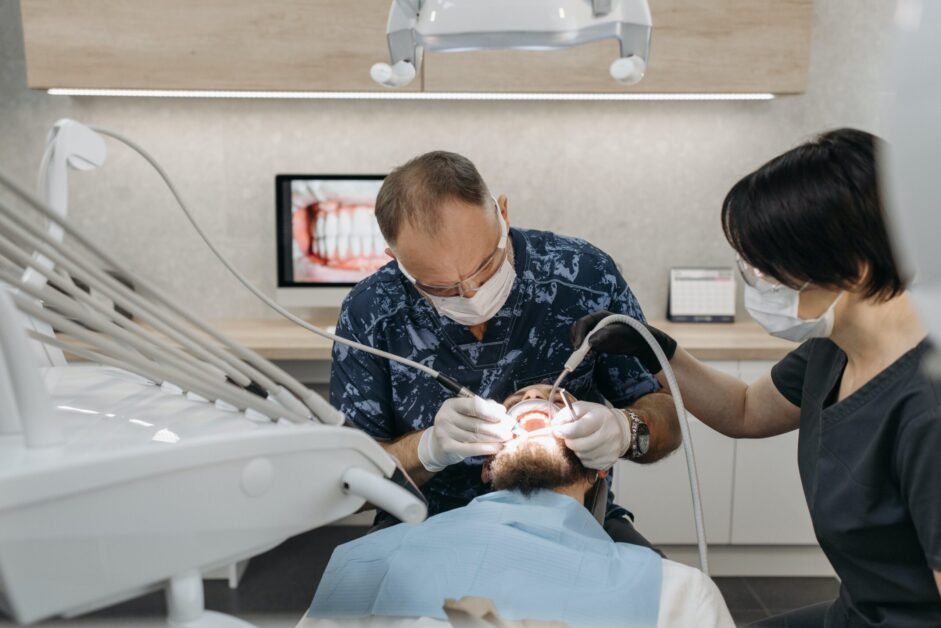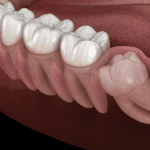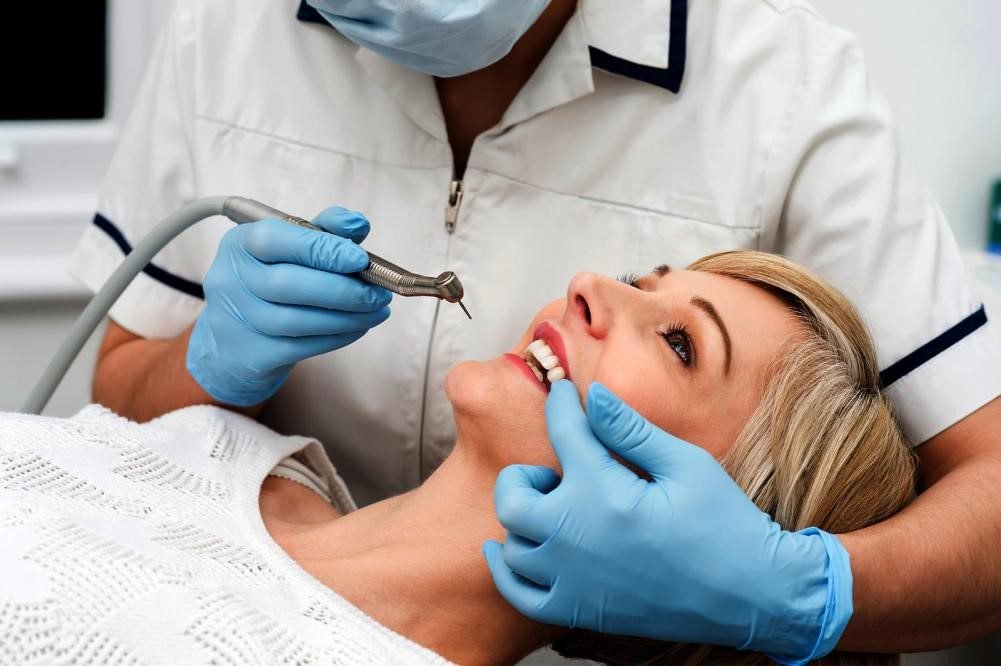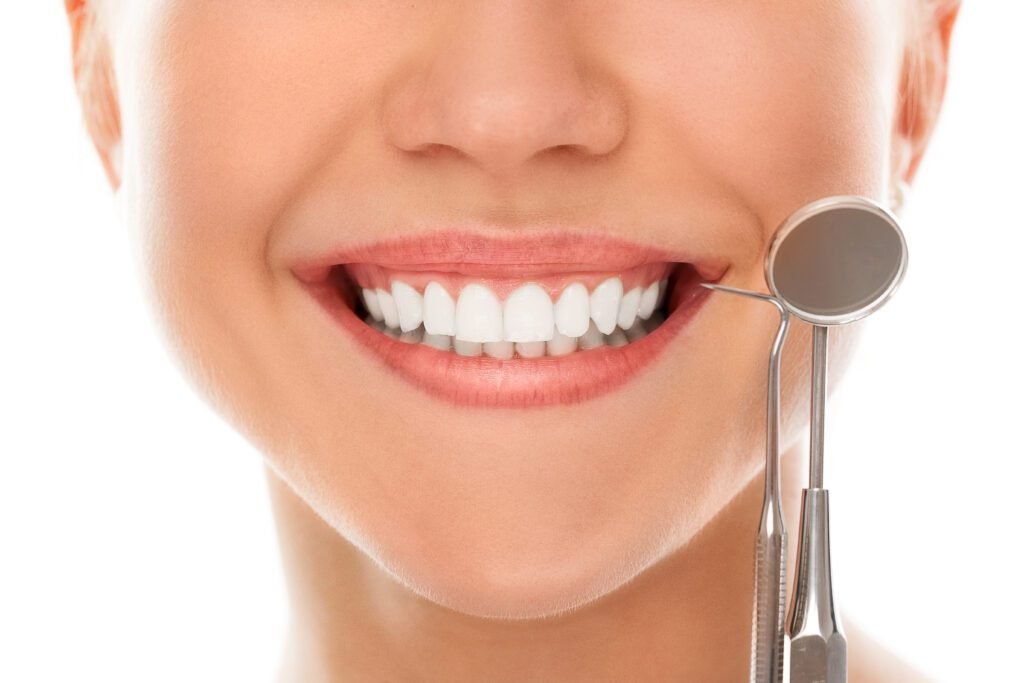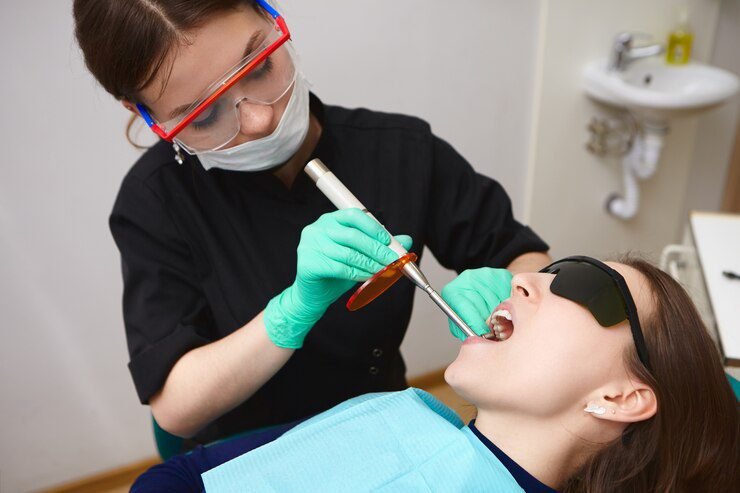Table of Contents
Understanding the Purpose of Wisdom Teeth

Wisdom teeth, also known as third molars, are the final set of molars to emerge in the back of the mouth. Their purpose dates back to our early ancestors when the human diet consisted mainly of coarse, rough foods. These additional molars were essential for grinding and chewing tough foods like roots, nuts, and raw meat.
Over time, as our diets evolved and our jaws became smaller, our need for wisdom teeth diminished. Modern humans now have smaller jaws that often cannot accommodate the emergence of these third molars. As a result, wisdom teeth often become impacted, meaning they are unable to fully emerge and are trapped beneath the gum line.
However, it’s important to note that not everyone experiences problems with their wisdom teeth. Some individuals have sufficient space in their jaws and their wisdom teeth emerge without any issues. In these cases, these extra molars can function just like any other teeth. Understanding the purpose of wisdom teeth allows us to better appreciate their historical significance, and why they may pose problems for some people today.
The Development of Wisdom Teeth
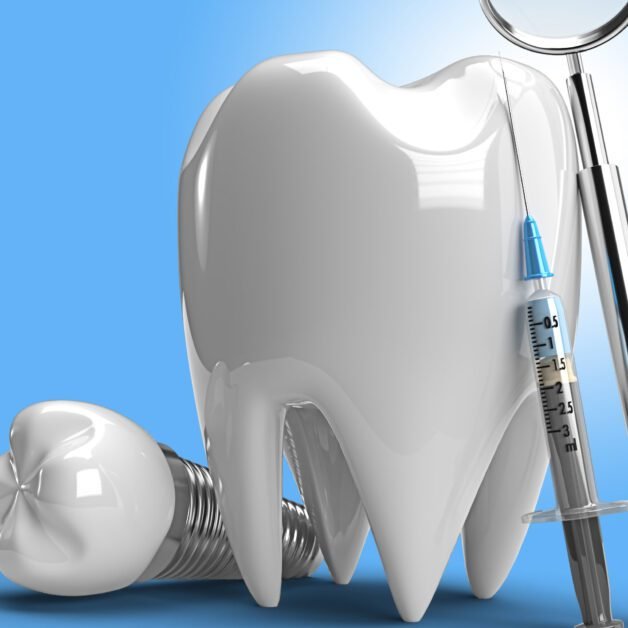
Wisdom teeth, also known as third molars, are the final set of teeth to develop in the human mouth. They typically emerge during the late teenage years or early twenties, and for some individuals, they may never erupt at all. The development of wisdom teeth is a natural process influenced by a combination of genetic factors and changes in the jaw structure over time.
During the early stages of development, wisdom teeth reside deep within the bone tissue, often hidden beneath the gum line. As they continue to grow, they slowly push through the gum tissue and attempt to emerge into the oral cavity. However, due to limited space in the modern human mouth, wisdom teeth frequently encounter obstructions in their path. These obstacles can include neighboring teeth, the jawbone, or the gums themselves. The presence of these obstructions may lead to various issues, such as impaction or misalignment, which we will explore in more detail later in this article.
Overall, the development of wisdom teeth is a complex and highly variable process. While some individuals experience a seamless eruption of their third molars, many others face challenges and complications. Understanding the intricacies of wisdom teeth development can help individuals make more informed decisions regarding their oral health and the potential need for wisdom teeth removal.
Signs and Symptoms of Impacted Wisdom Teeth
Impacted wisdom teeth can often go unnoticed until they start causing problems. One of the first signs of impacted wisdom teeth is pain or discomfort in the back of the mouth. This can be a constant dull ache or a sharp, intermittent pain. Other symptoms may include swelling and redness around the area, difficulty opening the mouth fully, and pain or tenderness in the jaw or ear.
In some cases, impacted wisdom teeth can cause infections, which can lead to more severe symptoms such as fever, swollen lymph nodes, and a bad taste or odor in the mouth. It is important to note that these symptoms can vary from person to person, and not everyone will experience all of them. If you are experiencing any of these signs or symptoms, it is recommended to consult with a dentist to determine if you have impacted wisdom teeth.
The Potential Risks and Complications of Untreated Wisdom Teeth
The potential risks and complications of untreated wisdom teeth can be significant. One of the main concerns with leaving impacted wisdom teeth untreated is the increased risk of infection. When wisdom teeth do not have enough space to fully emerge, they can become partially or fully trapped beneath the gum line. This can create a small pocket of gum tissue around the tooth, known as a flap, which can easily collect food particles and bacteria. Over time, this can lead to the development of an infection, known as pericoronitis.
In addition to infection, untreated wisdom teeth can also cause damage to neighboring teeth. When wisdom teeth are overcrowded or growing at an angle, they can exert pressure on adjacent teeth, leading to misalignment or even damage to the roots. This can result in pain, discomfort, and the need for more extensive dental work in the future. Furthermore, impacted wisdom teeth can also cause various oral health problems, such as gum disease, cysts, and jawbone damage. It is essential to address these risks and complications before they worsen and potentially lead to more severe issues involving oral health.
(Note: The above paragraphs provide an introduction to the potential risks and complications of untreated wisdom teeth. The article can continue with more specific details and information, as well as solutions and treatment options for addressing these risks.)
Factors to Consider Before Deciding on Wisdom Teeth Removal
Factors to Consider Before Deciding on Wisdom Teeth Removal
Wisdom teeth removal is a common dental procedure, but it is not always necessary for everyone. Before making a decision about removing your wisdom teeth, it is important to consider several factors that can influence the outcome of the procedure and the long-term effects on your oral health.
Firstly, one important consideration is the position and alignment of your wisdom teeth. If your wisdom teeth are properly aligned and able to erupt fully without causing any issues, then removal may not be necessary. However, if your wisdom teeth are impacted or causing crowding or misalignment of your other teeth, extraction may be recommended to prevent further complications. It is essential to consult with a dental professional who can evaluate your specific case and provide guidance based on your individual oral health needs.
Secondly, the presence of any symptoms or signs of problems related to your wisdom teeth should be considered. Common signs of impacted or problematic wisdom teeth include pain, swelling, infection, difficulty in opening your mouth, and jaw stiffness. It is crucial to address these symptoms as early as possible, as delaying treatment can lead to more severe complications. Your dentist will be able to assess the severity of your symptoms and make an informed recommendation regarding the removal of your wisdom teeth based on the current condition of your oral health.
How to Prepare for Wisdom Teeth Removal Surgery

Preparing for wisdom teeth removal surgery is an important step in ensuring a smooth and successful procedure. Before undergoing the surgery, it is crucial to follow certain guidelines to minimize the risk of complications and promote a speedy recovery.
Firstly, make sure to schedule a consultation with your dentist or oral surgeon. During this appointment, they will evaluate your oral health and discuss the details of the procedure with you. It’s important to provide them with accurate information about any medications you are taking, as well as any underlying medical conditions you may have. This will help them determine if any adjustments or additional precautions are necessary.
In addition, your dentist may recommend a series of pre-operative instructions for you to follow. This may involve avoiding certain foods and beverages, such as hot or cold liquids, alcohol, and spicy or crunchy foods, as they can irritate the surgical site. They may also advise you to stop taking certain medications, such as blood thinners, before the surgery to reduce the risk of excessive bleeding.
Lastly, it is important to arrange for a responsible adult to accompany you to the appointment and drive you home afterwards. General anesthesia or sedation is commonly used during wisdom teeth removal surgery, and its effects can last for several hours. Having someone with you who can provide support and ensure your safety is essential.
By adhering to these preparation guidelines, you can help create a favorable environment for a successful wisdom teeth removal surgery and a smoother recovery process. Remember to consult with your dentist or oral surgeon for personalized instructions based on your specific case.
The Procedure of Wisdom Teeth Removal
The procedure of wisdom teeth removal is a common dental surgery that is typically performed by an oral surgeon or a dentist specializing in oral surgery. It involves the extraction of one or more wisdom teeth, also known as third molars, which are the last teeth to develop in the mouth. Wisdom teeth removal is often recommended when these teeth become impacted, meaning they do not have enough space to fully emerge or they grow at an angle.
During the procedure, the dentist or oral surgeon will first administer local anesthesia to numb the area around the affected tooth or teeth. In some cases, general anesthesia may be used instead, especially if multiple wisdom teeth are being removed at once or if the procedure is expected to be more complex. Once the anesthesia has taken effect, the dentist will make an incision in the gum tissue to expose the tooth and bone. The tooth may be divided into smaller pieces for easier removal. After the tooth is removed, the site will be cleaned and any remaining debris will be flushed out. Finally, the incision will be stitched up, and gauze will be placed over the extraction site to control bleeding and promote healing.
Anesthesia Options for Wisdom Teeth Removal
Wisdom teeth removal is a common dental procedure that requires careful consideration of anesthesia options. The choice of anesthesia depends on various factors, including the complexity of the extraction, patient comfort, and the dentist’s expertise. There are three main types of anesthesia used for wisdom teeth removal: local anesthesia, sedation anesthesia, and general anesthesia.
Local anesthesia involves numbing the specific area where the wisdom teeth will be extracted. This ensures that patients are awake and alert during the procedure while experiencing minimal discomfort. The dentist will administer a local anesthetic to the affected area, ensuring that the patient does not feel any pain throughout the extraction process. Local anesthesia is commonly used for straightforward wisdom teeth removal, where the teeth are fully erupted and easily accessible.
Sedation anesthesia is another option for wisdom teeth removal, particularly for patients who experience anxiety or have complex extractions. With sedation anesthesia, the patient is placed in a relaxed state, allowing them to remain conscious but sedated throughout the procedure. This option is beneficial for patients who are nervous about the process or require multiple extractions. Sedation anesthesia helps patients feel more at ease while ensuring their comfort during the procedure.
General anesthesia is typically used for complex or impacted wisdom teeth cases. Under general anesthesia, the patient is completely unconscious and unaware of the procedure. This option is often preferred in cases where the extraction is expected to be time-consuming, difficult, or when multiple teeth need removal. General anesthesia ensures the patient’s comfort and allows the dentist to perform the procedure without any potential distractions.
Before deciding on the appropriate anesthesia option, it is crucial for the dentist to evaluate the patient’s medical history, current health condition, and any underlying concerns. It is also essential for patients to discuss their preferences, concerns, and expectations with their dentist. By considering all these factors, the dentist can select the most suitable anesthesia option to ensure a smooth and comfortable wisdom teeth removal experience.
Here’s a breakdown of anesthesia options commonly used for wisdom teeth removal:
| Anesthesia Options for Wisdom Teeth Removal | Description |
|---|---|
| 1. Local Anesthesia | – Local anesthesia involves injecting numbing medication (such as lidocaine) directly into the gum tissue surrounding the wisdom tooth. |
| – This anesthesia option blocks pain signals from reaching the brain, numbing the area and allowing the dentist or oral surgeon to perform the procedure while the patient remains awake. | |
| 2. Sedation Anesthesia | – Sedation anesthesia involves administering medication to help the patient relax and feel drowsy during the procedure. |
| – Different levels of sedation may be used, ranging from minimal sedation (where the patient remains awake but relaxed) to moderate sedation (where the patient may drift off to sleep but can still be awakened easily) to deep sedation (where the patient is on the edge of consciousness but can still respond to verbal commands). | |
| 3. General Anesthesia | – General anesthesia involves administering medication that induces a state of unconsciousness, rendering the patient completely asleep and unaware during the procedure. |
| – General anesthesia is typically administered intravenously (IV) by an anesthesiologist or nurse anesthetist and requires close monitoring of vital signs throughout the procedure. | |
| 4. Combination Anesthesia | – Combination anesthesia involves using a combination of local anesthesia and sedation or general anesthesia to provide optimal pain control and patient comfort during wisdom teeth removal. |
| – This approach allows for a customized anesthesia plan based on the patient’s individual needs, preferences, and the complexity of the procedure. |
What to Expect During Wisdom Teeth Removal Recovery
During the recovery period after wisdom teeth removal, it is common to experience some discomfort and swelling. This can vary among individuals, but typically peaks within the first 24 to 48 hours and gradually subsides over the following days. Pain medication prescribed by your oral surgeon can help manage any soreness or discomfort during this time.
In addition to discomfort, you may also notice some swelling in the cheeks and around the jawline. Applying ice packs to the affected area during the first 24 hours can help reduce swelling. It is important to avoid vigorous rinsing, spitting, or using a straw as these actions can potentially dislodge the blood clot that forms in the extraction site and lead to a painful condition known as dry socket. Instead, gentle rinsing with saltwater can help keep the area clean and promote healing. It is also advised to stick to soft foods and avoid hard, crunchy, or hot foods that may irritate the extraction site. Following these guidelines and taking proper care of yourself during the recovery period can help ensure a smoother healing process.
Tips for a Faster and Easier Wisdom Teeth Recovery
One of the most important factors for a faster and easier wisdom teeth recovery is proper oral hygiene. After the surgery, it is crucial to keep the mouth clean to prevent infection and promote healing. Gently brush your teeth using a soft-bristled toothbrush, being careful to avoid the extraction sites. Rinse your mouth with warm saltwater solution several times a day to reduce swelling and kill bacteria. It is also recommended to avoid using mouthwashes that contain alcohol, as they can irritate the surgical sites.
In addition to oral hygiene, it is vital to follow a soft-food diet during the recovery period. Stick to foods that are easy to chew and swallow, such as soups, yogurt, smoothies, and mashed potatoes. Avoid hard, crunchy, or sticky foods that can disrupt the healing process or become stuck in the extraction sites. Adequate hydration is also crucial for a faster recovery, so make sure to drink plenty of water throughout the day. By maintaining good oral hygiene and following a soft-food diet, you can significantly improve your chances of a smooth and speedy wisdom teeth recovery.
Possible Side Effects and Complications After Wisdom Teeth Removal
Following wisdom teeth removal, it is crucial to be aware of possible side effects and complications that may arise during the recovery period. These can vary depending on factors such as the individual’s oral health, the complexity of the extraction, and adherence to post-operative instructions.
One common side effect is swelling, which can affect the cheeks, jaw, and surrounding tissues. This occurs as a result of the body’s natural response to surgery and typically peaks within the first 48-72 hours before gradually subsiding. Pain and discomfort are also common and can be managed effectively with prescribed pain medication or over-the-counter analgesics, as recommended by the dentist or oral surgeon.
In rare cases, more serious complications may occur, such as infection or dry socket. Infections can lead to symptoms such as prolonged or worsening pain, swelling, redness, or discharge. Dry socket, which occurs when the blood clot that forms in the socket is dislodged or dissolves prematurely, may result in severe pain and an increased risk of infection. If any of these complications arise, it is essential to seek immediate dental attention for proper diagnosis and appropriate treatment.
Long-Term Benefits of Wisdom Teeth Removal
Wisdom teeth removal is a common dental procedure that offers several long-term benefits. By removing these third molars, individuals can prevent various oral health issues that may arise in the future.
One of the primary long-term benefits of wisdom teeth removal is the prevention of overcrowding. As the human jaw has evolved over time, it has become smaller, leaving less space for the wisdom teeth to grow properly. This lack of space often leads to the misalignment of teeth, causing crowding and shifting of surrounding teeth. By removing the wisdom teeth, orthodontic problems can be avoided, reducing the need for braces or other corrective measures later in life.
Another significant long-term benefit is the prevention of infection and decay. Wisdom teeth are notorious for being difficult to clean due to their position at the back of the mouth. As a result, they often become a breeding ground for bacteria, leading to gum infections such as pericoronitis and tooth decay. By removing these teeth, the risk of such infections and decay is greatly reduced, promoting better oral health in the long run.
Wisdom teeth removal offers these and other long-term benefits, aiming to preserve oral health and prevent future complications. With proper care and attention, individuals can enjoy a healthier and more comfortable smile, minimizing the need for extensive dental treatments in the future.
Alternatives to Wisdom Teeth Removal
Wisdom teeth removal is a common procedure, but it is not always necessary. In certain cases, there may be alternatives to consider. One option is to keep the wisdom teeth if they are healthy, properly aligned, and not causing any issues. Regular check-ups and monitoring by a dentist are essential to ensure the teeth remain in good condition and do not pose any future problems. Additionally, maintaining proper oral hygiene, including regular brushing and flossing, can help prevent complications associated with wisdom teeth.
Another alternative to wisdom teeth removal is undergoing orthodontic treatment. In some situations, crowded teeth or misalignment can be corrected through orthodontic intervention, which may eliminate the need for extraction. A skilled orthodontist can assess the specific circumstances and determine if this is a viable option for a patient. However, it is important to note that orthodontic treatment alone may not always be sufficient, especially if the wisdom teeth are causing severe pain, infection, or other complications.
Before considering alternatives to wisdom teeth removal, it is crucial to consult with a qualified dental professional who can thoroughly evaluate your individual case. They will provide personalized recommendations based on their expertise and understanding of your specific dental needs.
What are some alternatives to wisdom teeth removal?
Some alternatives to wisdom teeth removal include monitoring the teeth for any signs of complications, practicing good oral hygiene to prevent infection, and using orthodontic treatments to create more space in the mouth for the wisdom teeth to erupt properly.
How can I determine if my wisdom teeth are impacted?
Signs and symptoms of impacted wisdom teeth may include pain or discomfort in the back of the mouth, swollen or bleeding gums, difficulty opening the mouth, bad breath, and an unpleasant taste in the mouth.
What are the potential risks of leaving impacted wisdom teeth untreated?
Untreated impacted wisdom teeth can lead to various complications such as infection, tooth decay, gum disease, cysts or tumors, damage to surrounding teeth, and misalignment of the bite.
What factors should I consider before deciding on wisdom teeth removal?
Factors to consider include the position and condition of the wisdom teeth, the presence of any symptoms or complications, the risk of future problems, the individual’s age and overall dental health, and the recommendation of a dental professional.
How can I prepare for wisdom teeth removal surgery?
Preparations for wisdom teeth removal surgery may include arranging for a ride home after the procedure, fasting (if required), following any pre-surgery instructions given by the dentist, and discussing any concerns or questions with the dental professional.
What anesthesia options are available for wisdom teeth removal?
Anesthesia options for wisdom teeth removal include local anesthesia (numbing the area around the teeth), sedation anesthesia (administered through an IV to help the patient relax), and general anesthesia (rendering the patient unconscious).
What can I expect during the recovery period after wisdom teeth removal?
During the recovery period, it is common to experience swelling, pain, bleeding, and limited jaw movement. The dentist may provide instructions on managing these symptoms, maintaining oral hygiene, and consuming a soft diet.
Are there any tips for a faster and easier wisdom teeth recovery?
Yes, some tips for a faster and easier recovery include following post-operative instructions carefully, applying ice packs to reduce swelling, taking prescribed pain medications as directed, eating soft and nutritious foods, avoiding smoking or using straws, and maintaining good oral hygiene.
What are some possible side effects or complications after wisdom teeth removal?
Possible side effects or complications after wisdom teeth removal may include dry socket (pain and delayed healing), infection, nerve damage, excessive bleeding, or damage to adjacent teeth or dental restorations. It is important to promptly report any concerns to the dentist.
What are the long-term benefits of wisdom teeth removal?
Long-term benefits of wisdom teeth removal include reducing the risk of future dental problems such as decay, gum disease, and misalignment. It can also improve oral hygiene access, prevent overcrowding, and preserve the alignment achieved through orthodontic treatment.
Are there any alternatives to wisdom teeth removal?
Yes, alternatives to wisdom teeth removal include regular monitoring, maintaining good oral hygiene, and orthodontic treatments to create more space in the mouth. However, it is important to consult with a dental professional to determine the most suitable option based on individual circumstances.

